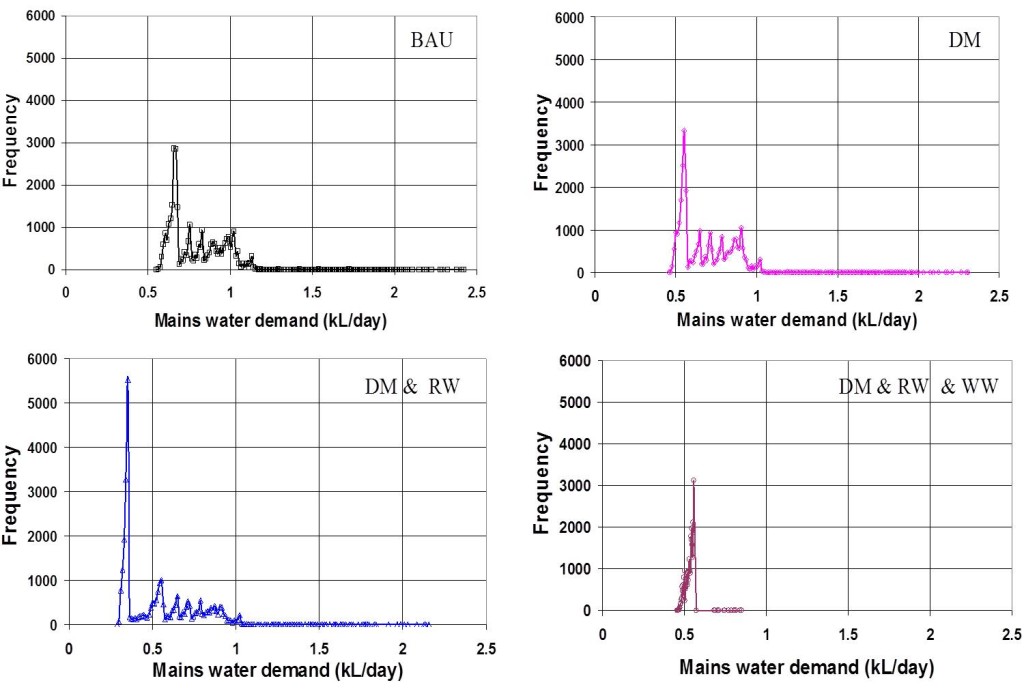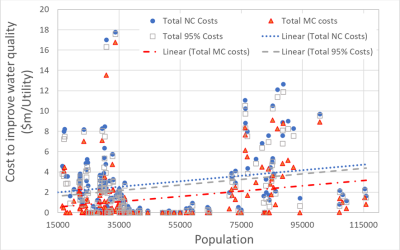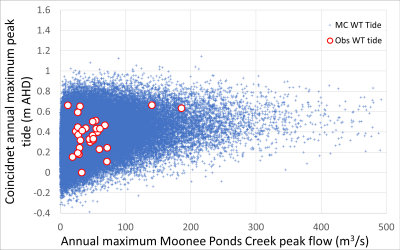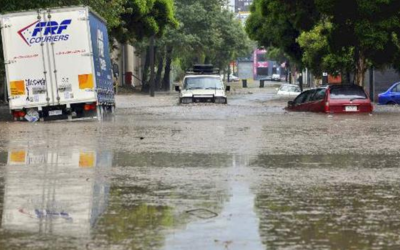
A simple case study is presented to demonstrate how traditional infrastructure can be augmented with innovative WSUD approaches to provide significant improvements in the performance of traditional water infrastructure. The computer program PURRS has been used to simulate the effects of water demand management, wastewater reuse and rainwater tanks on mains water supply. This has been done by modelling the lot scale water balance and then determining the water supply characteristics.
A discussion on the potential benefits that may be obtained from the combined water cycle asset serviceability is provided which describes how lifecycle costs may be reduced and asset replacements deferred. This paper concludes that it is absolutely necessary to investigate the urban water cycle in a holistic and integrated way in order to provide more optimal outcomes to urban water cycle problems.






